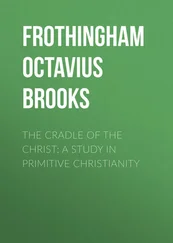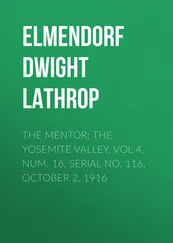Anne Blunt - A Pilgrimage to Nejd, the Cradle of the Arab Race. Vol. 1 [of 2]
Здесь есть возможность читать онлайн «Anne Blunt - A Pilgrimage to Nejd, the Cradle of the Arab Race. Vol. 1 [of 2]» — ознакомительный отрывок электронной книги совершенно бесплатно, а после прочтения отрывка купить полную версию. В некоторых случаях можно слушать аудио, скачать через торрент в формате fb2 и присутствует краткое содержание. Жанр: foreign_antique, foreign_prose, Путешествия и география, на английском языке. Описание произведения, (предисловие) а так же отзывы посетителей доступны на портале библиотеки ЛибКат.
- Название:A Pilgrimage to Nejd, the Cradle of the Arab Race. Vol. 1 [of 2]
- Автор:
- Жанр:
- Год:неизвестен
- ISBN:нет данных
- Рейтинг книги:4 / 5. Голосов: 1
-
Избранное:Добавить в избранное
- Отзывы:
-
Ваша оценка:
- 80
- 1
- 2
- 3
- 4
- 5
A Pilgrimage to Nejd, the Cradle of the Arab Race. Vol. 1 [of 2]: краткое содержание, описание и аннотация
Предлагаем к чтению аннотацию, описание, краткое содержание или предисловие (зависит от того, что написал сам автор книги «A Pilgrimage to Nejd, the Cradle of the Arab Race. Vol. 1 [of 2]»). Если вы не нашли необходимую информацию о книге — напишите в комментариях, мы постараемся отыскать её.
A Pilgrimage to Nejd, the Cradle of the Arab Race. Vol. 1 [of 2] — читать онлайн ознакомительный отрывок
Ниже представлен текст книги, разбитый по страницам. Система сохранения места последней прочитанной страницы, позволяет с удобством читать онлайн бесплатно книгу «A Pilgrimage to Nejd, the Cradle of the Arab Race. Vol. 1 [of 2]», без необходимости каждый раз заново искать на чём Вы остановились. Поставьте закладку, и сможете в любой момент перейти на страницу, на которой закончили чтение.
Интервал:
Закладка:
Another interesting visit which we paid while at Damascus was to Abd el-Kader, the hero of the French war in Algiers. This charming old man, whose character would do honour to any nation and any creed, is ending his days as he began them, in learned retirement and the exercises of his religion. The Arabs of the west, “Maghrabi” (Mogrebins), are distinguished from those of the Peninsula, and indeed from all others, by a natural taste for piety and a religious tone of thought. Arabia proper, except in the first age of Islam and latterly during the hundred years of Wahhabi rule, has never been a religious country. Perhaps out of antagonism to Persia, its nearest neighbour, it neglects ceremonial observance, and pays little respect to saints, miracles, and the supernatural world in general. But with the Moors and the Algerian Arabs this is different. Their religion is the reason of their social life and a prime mover in their politics. It is the fashion there, even at the present day, for a rich man to spend his money on a mosque, as elsewhere he would spend it on his stud and the entertainment of guests, and nothing gives such social distinction as regular attendance at prayer. There is too, besides the lay nobility, a class of spiritual nobles held equally high in public estimation. These are the marabous or descendants of certain saints, who by virtue of their birth partake in the sanctity of their ancestors and have hereditary gifts of divination and miraculous cure. They hold indeed much the same position with the vulgar as did the sons of the prophets in the days of Saul.
Abd el-Kader was the representative of such a family, and not, as I think most people suppose, a Bedouin Sheykh. In point of fact he was a townsman and a priest, not by birth a soldier, and though trained, as nobles of either class were, to arms, it was only the accident of a religious war that made him a man of action. He gained his first victories by his sermons, not by his sword; and, now that the fight is over, he has returned naturally to his first profession, that of saint and man of letters. As such, quite as much as for his military renown, he is revered in Damascus.
To us, however, it is the extreme simplicity of his character and the breadth of his good sense, amounting to real wisdom, which form his principal charm. “Saint” though he be “by profession,” as one may say, for such he is in his own eyes as well as those of his followers, he is uninjured by his high position. It is to him an obligation. His charity is unbounded, and he extends it to all alike; to be poor or suffering is a sufficient claim on him. During the Damascus massacres he opened his doors to every fugitive; his house was crowded with Christians, and he was ready to defend his guests by force if need were. To us he was most amiable, and talked long on the subject of Arab genealogy and tradition. He gave me a book which has been lately written by one of his sons on the pedigree of the Arabian horse, and took an evident interest in our own researches in that direction. He made the pilgrimage to Mecca many years ago, travelling the whole way from Algeria by land and returning through Nejd to Meshhed Ali and Bagdad. This was before the French war.
Abd el-Kader returned our visit most politely next day, and it was strange to see this old warrior humbly mounted on his little Syrian donkey, led by a single servant, riding into the garden where we were. He dresses like a mollah in a cloth gown, and with a white turban set far back from his forehead after the Algerian fashion. He never, I believe, wore the Bedouin kefiyeh. His face is now very pale as becomes a student, and his smile is that of an old man, but his eye is still bright and piercing like a falcon’s. It is easy to see, however, that it will never flash again with anything like anger. Abd el-Kader has long possessed that highest philosophy of noble minds according to Arab doctrine, patience.
A man of a very different sort, but one whom we were also interested to see, was Midhat Pasha, just arrived at Damascus as Governor-General of Syria. He had come with a considerable flourish of trumpets, for he was supposed to represent the doctrine of administrative reform, which was at that time seriously believed in by Europeans for the Turkish Empire. Midhat was the protégé of our own Foreign Office, and great things were expected of him. For ourselves, though quite sceptical on these matters and knowing the history of Midhat’s doings at Bagdad too well to have any faith in him as a serious reformer, we called to pay our respects, partly as a matter of duty, and partly it must be owned out of curiosity. It seemed impossible that a man who had devised anything so fanciful as parliamentary government for Turkey should be otherwise than strange and original. But in this we were grievously disappointed, for a more essentially commonplace, even silly talker, or one more naïvely pleased with himself, we had never met out of Europe. It is possible that he may have adopted this tone with us as the sort of thing which would suit English people, but I don’t think so. We kept our own counsel of course about our plans, mentioning only that we hoped to see Bagdad and Bussora and to go on thence to India, for such was to be ultimately our route. On the mention of these two towns he at once began a panegyric of his own administration there, of the steamers he had established on the rivers, the walls he had pulled down and tramways built. “Ah, that tramway,” he exclaimed affectionately. “It was I that devised it, and it is running still. Tramways are the first steps in civilisation. I shall make a tramway round Damascus. Everybody will ride in the trucks. It will pay five per cent. You will go to Bussora. You will see my steamers there. Bussora, through me, has become an important place. Steamers and tramways are what we want for these poor countries. The rivers of Damascus are too small for steamers, or I should soon have some afloat. But I will make a tramway. If we could have steamers and tramways everywhere Turkey would become rich.” “And canals,” we suggested, maliciously remembering how he had flooded Bagdad with his experiments in this way. “Yes, and canals too. Canals, steamers, and tramways, are what we want.” “And railways.” “Yes, railways. I hope to have a railway soon running alongside of the carriage road from Beyrout. Railways are important for the guaranteeing of order in the country. If there was a railway across the desert we should have no more trouble with the Bedouins. Ah, those poor Bedouins, how I trounced them at Bagdad. I warrant my name is not forgotten there.” We assured him it was not.
He then went on to talk of the Circassians, “ ces pauvres Circassiens ,” for he was speaking in French, “ il faut que je fasse quelque chose pour eux .” I wish I could give some idea of the tone of tenderness and almost tearful pity in Midhat’s voice as he pronounced this sentence; the Circassians seemed to be dearer to him than even his steamers and tramways. These unfortunate refugees are, in truth, a problem not easy of solution: they have been a terrible trouble to Turkey, and, since they were originally deported from Russia after the Crimean war, they have been passed on from province to province until they can be passed no further. They are a scourge to the inhabitants wherever they go, because they are hungry and armed, and insist on robbing to get a livelihood. To the Syrian Arabs they are especially obnoxious, because they shed blood as well as rob, which is altogether contrary to Arab ideas. The Circassians are like the foxes which sportsmen turn out in their covers. It is a public-spirited act to have done so, but they cannot be made to live in peace with the hares and rabbits. Midhat, however, had a notable scheme for setting things to rights. He would draft all these men into the corps of zaptiehs, and then, if they did rob, it would be in the interests of Government. Some score of them were waiting in the courtyard at the time of our visit, to be experimented on; and a more evil-visaged set it would have been difficult to select.
Читать дальшеИнтервал:
Закладка:
Похожие книги на «A Pilgrimage to Nejd, the Cradle of the Arab Race. Vol. 1 [of 2]»
Представляем Вашему вниманию похожие книги на «A Pilgrimage to Nejd, the Cradle of the Arab Race. Vol. 1 [of 2]» списком для выбора. Мы отобрали схожую по названию и смыслу литературу в надежде предоставить читателям больше вариантов отыскать новые, интересные, ещё непрочитанные произведения.
Обсуждение, отзывы о книге «A Pilgrimage to Nejd, the Cradle of the Arab Race. Vol. 1 [of 2]» и просто собственные мнения читателей. Оставьте ваши комментарии, напишите, что Вы думаете о произведении, его смысле или главных героях. Укажите что конкретно понравилось, а что нет, и почему Вы так считаете.
![Anne Blunt A Pilgrimage to Nejd, the Cradle of the Arab Race. Vol. 1 [of 2] обложка книги](/books/749489/anne-blunt-a-pilgrimage-to-nejd-the-cradle-of-the-cover.webp)











